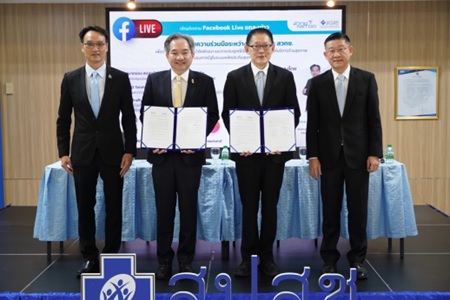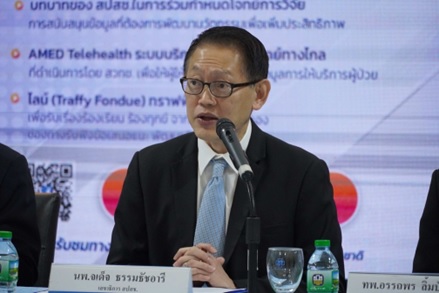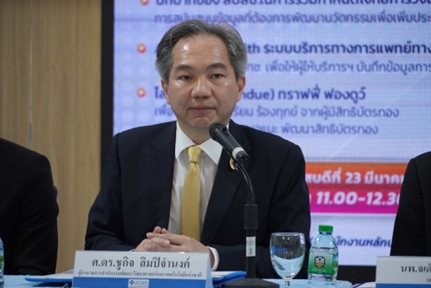NSTDA and the National Health Security Office (NHSO) entered an MOU to create innovations for the universal health coverage (UHC) – Thailand’s tax-financed scheme that provides essential health services at all life stages. In its initial stage, the collaboration will focus on 5 issues: 1) e-claim gateway, 2) complaint management system (Traffy Fondue) and matching medical needs to hospitals, 3) cloud computing design, 4) an application of big data & AI and dashboard for administrative management, 5) a roadmap for the research and development of medical devices and artificial organs covered by UHC.

NHSO Secretary-General Dr. Jadej Thammatacharee remarked that this collaboration will greatly enhance the UHC and create health security for all UHC beneficiaries. Under this partnership, NHSO will help identify pressing issues that require R&D, support and provide access to data and information, co-create IT and medical device solutions, and provide resources for the implementation.

“The five afore-mentioned areas of focus under this collaboration have been reached based on thorough analysis performed jointly by NSTDA and NHSO that will improve the services and administration of UHC by expanding A-MED Telehealth to include an electronic reimbursement submission and a complaint management system” said Dr. Jadej.

NSTDA President Prof. Dr. Sukit Limpijumnong said that this collaboration will allow NSTDA to bring its expertise to create innovative solutions to support UHC. Traffy Fondue application has been applied to UHC to help improve its service provision. A total of 766 complaints have been received, 470 or 61.36% of which are UHC-related. Of 470 complaints, 463 have been resolved and 7 are being handled. Traffy Fondue is also used to conduct a survey on public opinion on the UHC fund in 2023.
An e-claim gateway has already been added to A-MED Telehealth to increase flexibility, efficiency and accuracy in the reimbursement process between the hospitals and NHSO. In addition to e-claim, A-MED Telehealth has been expanded to include A-MED Care. Co-developed by NSTDA, NHSO and the Pharmacy Council of Thailand (PCT), A-MED Care aims to increase people’s access to primary care, by allowing UHC beneficiaries to get medicines for treating 16 common illnesses at 900 pharmacies participating in the program. The number of participating pharmacies is expected to reach 1,500 by the end of this year.
“This partnership will demonstrate the power of science, technology and innovation, especially digital technology and artificial intelligence, to bring about improved quality of life and better health services to Thai people,” concluded Dr. Sukit.
